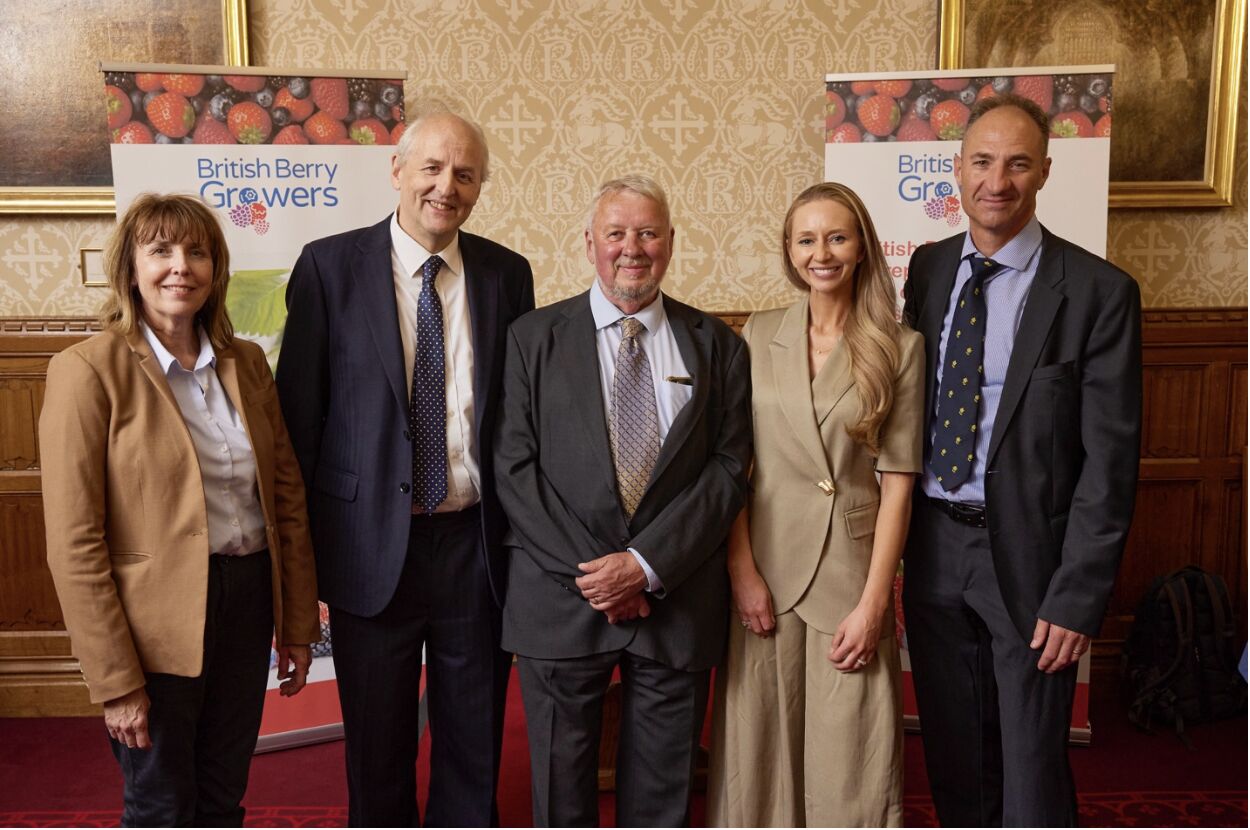British Berry Growers (BBG), the industry association for the growers of 95% of UK berry production, says the industry is facing ‘very real headwinds’.
Launching a new in-depth industry analysis and report by EY, The British berry industry in focus, the association’s Chairman, Nick Marston, said politics, economics, technology, planning, consumer demand and sustainability were all impacting growers and the threatening the industry at large.
Speaking at the report’s launch in the House of Lords, in front of an audience of Lords, Ministers, MPs, retailers and growers, Nick Marston, Chairman, British Berry Growers, said: “Our climate is maritime and is, and will remain, ideal for berry growing. We are world leading in production and environmental technology. Our industry can evolve to support ongoing growth of the domestic market and take advantage of a real opportunity to grow more crop for export.
“This new EY report shows our industry currently provides more than 16,000 full-time jobs, £624 million per annum Gross Value Added to our economy, pays tax of over £130 million per annum to the UK Exchequer and contributes to the wider rural economy supporting local services and jobs.
“Government recognises that an increasingly fractious world order requires increased UK food production and improved UK food security; the production of fresh, healthy and nutritious food within our own borders is a critical element of national security.
“Our industry contributes to this in spades. However, grower confidence to invest in and expand production is low – the EY report shows an average industry EBITDA in 2023 of a wafer thin 4.3%. This is a level of return on investment that currently does not support ongoing investment.
“We need government and retailers to help us help Britain. Retailers, very simply by recognising the cost of production inflationary pressures and the need to compensate growers for this.
“And government by evolving a rolling and fit-for-purpose workers Visa scheme, delivering a clear national planning framework that facilitates the building of critical infrastructure and unlocking funding for spend on improved productivity and technology.”
When it comes sustainability, Dr Louise Sutherland, who leads research & development for BBG, believes that environmental matters are crucial to the industry’s survival, but that in this area, the EY Report shows things are more optimistic.
Dr Louise Sutherland said: “Research among growers shows enormous appetite for sustainability and my belief is that growers understand the symbiotic nature of the relationship between their businesses and the land they steward better than anyone.
“More than 96% of our members are planting wildflower strips around their farms, 96% of strawberry and 100% of raspberry, blueberry and blackberry growers use integrated pest management systems, 100% have water efficiency plans and measure water quality and investing in their own water stewardship. More than this, 96% are also either buying renewable energy or generating their own using solar panels, upgrading cold stores to reduce energy consumption (57%) and making fruit transportation more energy efficient (43%) through use of, for example, trials of EV forklifts.
“So, from an environmental perspective at least, I have a strong degree of optimism for the industry which is working extremely hard and delivering much quicker than many other parts of the economy when it comes to all things sustainable. If the industry fails, it won’t be because it has neglected its environmental responsibilities.”
The British berry industry in focus report also highlights that an important part of the industry’s future lies in how it grows relevance, with consumers increasingly seeking out healthy food.
As a result of the findings, this year BBG has partnered up with Registered Nutritionist, author, podcaster and founder of The Rhitrition Clinic, Rhiannon Lambert, to talk very specifically about the health benefits of berries, particularly at breakfast.
Rhiannon Lambert said, “Whole food is something we should all be emphasising in our diets; berries are high in fibre, vitamins and antioxidants as well as being full of flavour and easily accessible and should be regularly consumed through the British season (April – October).
“In a world where so much noise exists around ultra-processed food and foods which are HFSS* it’s important that we remember just how easy a win berries are for families across the UK.
“My focus this year is the food we supply our children with, as a parent and busy mum I understand the time pressures and difficulties facing anybody trying to raise children in today’s modern world, which is saturated with ultra processed foods.’
“Specifically breakfasts because we already see hundreds of thousands of people adding berries to cereals of every kind, porridge, yoghurts and smoothies. If we can persuade these shoppers to do this at least two or three days a week and can persuade others to try it at least once or twice per week, we can make an enormous difference to those individuals, families and society at large. All of which impacts positively on health.
“Ultra-processed and HFSS foods have multi-million-pound ad and PR budgets to seduce consumers with, but our brilliant British berry growers don’t. If government and retailers are serious about public health, they need to be serious about helping us be just as seductive with fresh food.”

